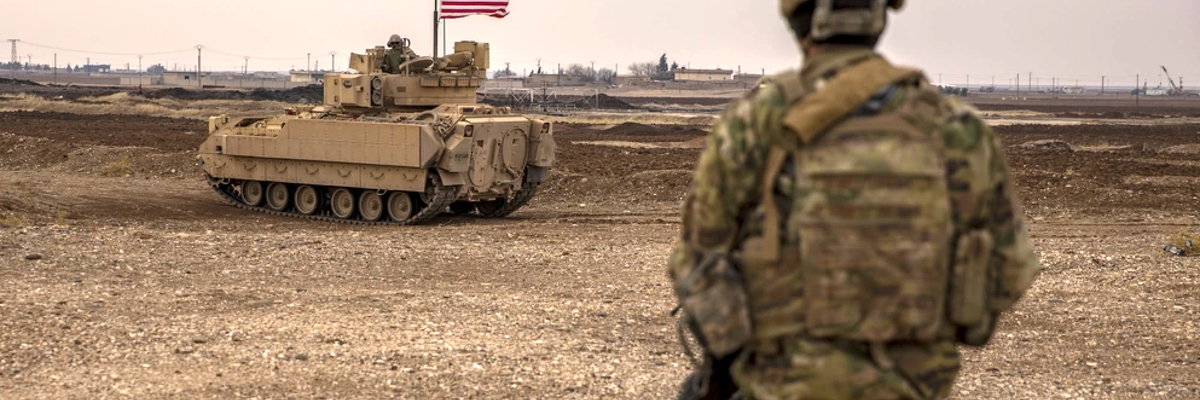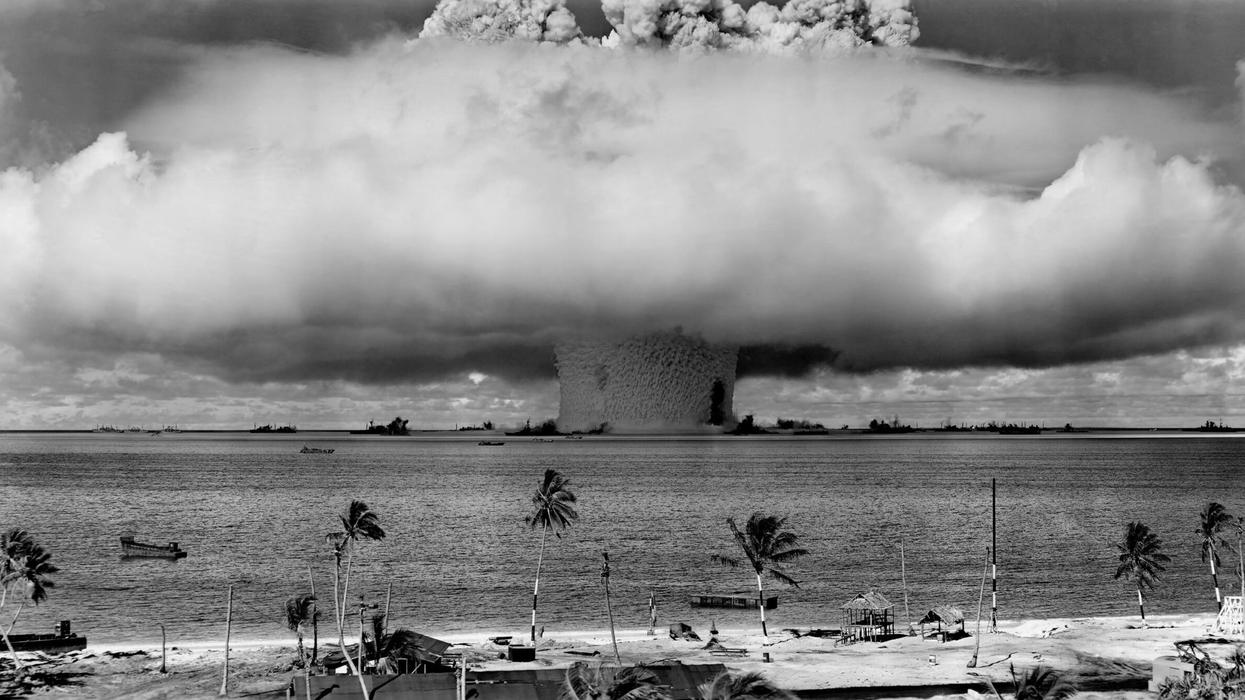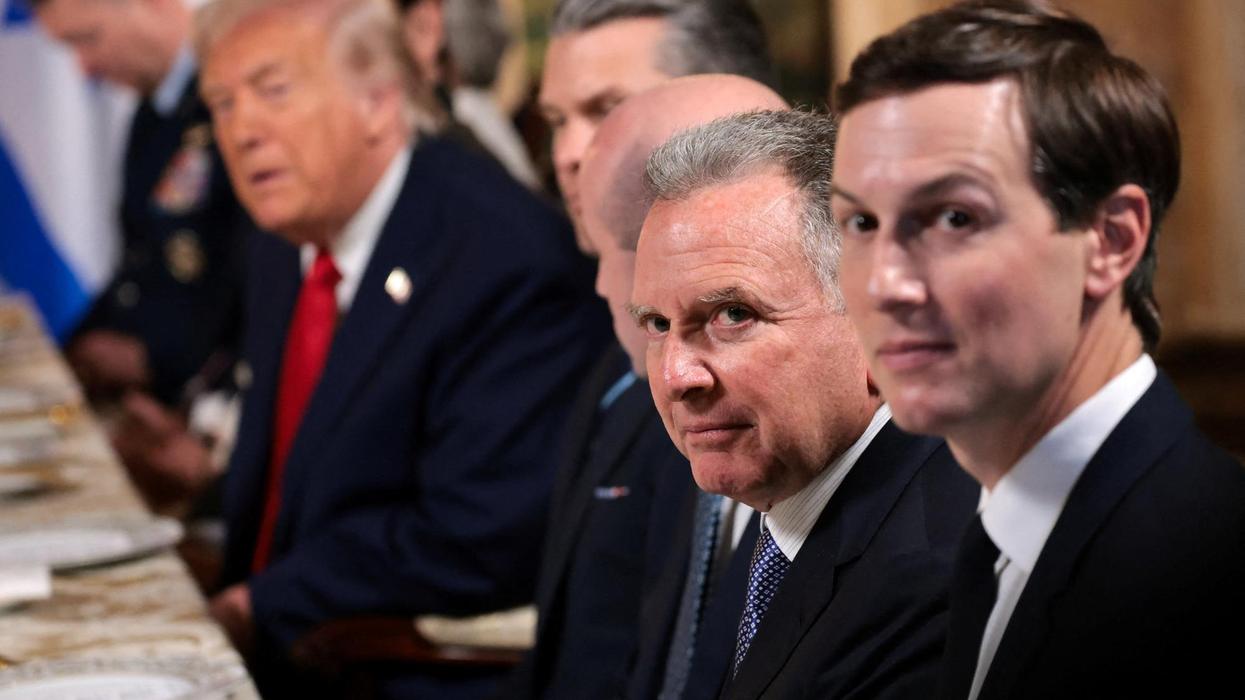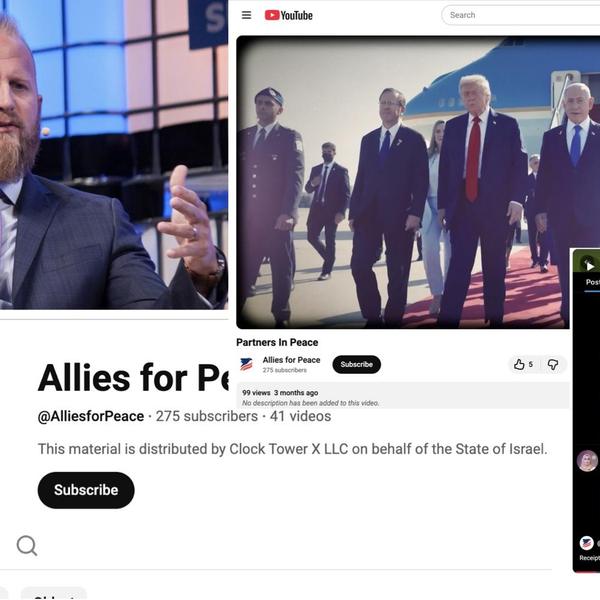It’s now been five days since Hamas staged the most ambitious attack in its history. The Palestinian militants broke through the fence dividing Gaza from Israel and managed to hold territory for several days, killing at least 1200 civilians and Israeli military personnel along the way.
Israel has responded with a devastating attack on Gaza, killing at least 1100 civilians and Hamas fighters in days of airstrikes that are a likely prelude for a ground invasion, the first since 2014.
Tel Aviv’s response has received emphatic support from the United States, which has greenlit emergency weapons shipments, moved an aircraft carrier strike group into the eastern Mediterranean, and pledged logistical and intelligence support for Israel as it tries to recover more than 100 hostages taken back into Gaza by Hamas, some of whom are American citizens. Washington has also warned Hamas allies — including Iran and Hezbollah — against entering the fight.
While President Joe Biden has not yet sent troops to join the conflict, the possibility that the United States will wind up at war in the Middle East is now “higher than most people realize,” according to Michael DiMino, a researcher at Defense Priorities who worked as a counterterrorism analyst at the CIA during multiple regional crises.
“Once that box is opened — even if due to accident or miscalculation — it can't easily be closed,” DiMino argued. “I don't think this Administration wants to get embroiled in a new Middle East hot war for a number of reasons, but sometimes intent isn't enough to prevent things from spiraling out of control.”
RS spoke with DiMino to understand if and how the United States can prevent that spiral of escalation. The following conversation has been edited for length and clarity.
RS: You've said that the risk of direct U.S. involvement in this war is higher than most people realize. Can you start by explaining why? What are analysts missing?
DiMino: Having spent time working crises in the region, whether it was the Turkish incursion into Syria, or the war in Yemen, or the aftermath of the Soleimani strike, what people miss is that as soon as we start surging forces to the region — naval forces, air assets — as soon as that stuff starts to happen, the playbook for policymakers necessarily has to widen on contingency planning. And that involves direct U.S. involvement in some cases. Also, people are missing the sheer number of variables of things that can happen. Just because the U.S. may have a stated intention to avoid deeper conflict or just because Hezbollah has not committed forces beyond the border, just because the intention is there does not mean that miscalculation, missed signals, and events on the ground can't just force chains of events into action.
One thing I would give an example of is the question of unity of command. We can't talk about groups like Hezbollah as these monolithic organizations. They may receive orders not to do something, and you're relying on local command and control nodes to make sure that you don't have a rogue cell of Hezbollah guys that decide to go into Israel or decide to carry out another set of attacks or widen the front in other places. There's all sorts of unity of command issues that can really pressure policymakers into widening the conflict.
The Israelis have said that opening a significant additional front would be grounds for U.S. involvement. Even if we don't think that Hezbollah senior leadership is supportive of that, you have to rely on 1000s of fighters and local commanders understanding those priorities as well. Even if we feel confident that the U.S. doesn't want to go further, or we feel confident that certain governments in the region are being at least somewhat restrained in how they're responding to this, I don't think that's enough. From a military and intelligence perspective, I don't think people appreciate the sheer number of variables that go into a very hot, minute-by-minute crisis like this.
RS: What might the big fear of escalation be here? Is this fear that there'll be a potential war with Iran? Why should Americans be concerned about the potential for direct U.S. intervention?
DiMino: As soon as we make commitments to our partners and allies, and then those commitments get tested, it really pressures policymakers into a shoebox where they feel like in order not to lose U.S. credibility or deterrence capability, we have to respond. I'm not saying it's necessarily likely, but I'm saying it is possible that if we promise to Israel that we will get involved kinetically should Hezbollah decide to commit its forces, and then Hezbollah does so, and then we start conducting strikes in Lebanon, then [the situation could spiral].
At that point, I wouldn't be surprised if U.S. forces in Iraq and in Syria became targets of Shia militia groups in those countries, and then I think there would be pressure from Israel to try to support limited action against Iran. Obviously, that would be a disaster for all parties involved, not least the United States. I don't think that this administration wants to do that, but I do think once these events start to roll together and the decision matrices and the timelines that those decisions have to be made on get narrower and narrower, that these kinds of things can happen.
I was working in the government during our last couple of rounds of escalation with Iran, and I would say that even in a span of a couple of hours, during those previous crises, we came very, very, very close to a new kind of kinetic involvement in the Middle East. Seeing how quickly those decisions were made and how little time policymakers really have to consider a lot of this, I do think that, even if it's a minimal risk, it's one that we should take seriously and that we should steel ourselves against. We should be holding our policymakers to account to ensure that any kind of involvement that we do provide in the Israel-Hamas context to Israel or other regional partners, that we're doing so with a mind to de-escalate.
RS: The White House has pointedly avoided calling for a ceasefire or de-escalation, and even deleted statements to that effect that had been tweeted out. Do you think that's a wise strategy? How do you think those conversations in public might differ from ones in private between U.S. and Israeli officials?
DiMino: Behind closed doors, there are going to be calls between U.S. and Israeli officials that I'm sure are centered around saying, "Look, we need you guys to mitigate civilian casualties to the extent that you can." And I think the wheels are already turning on discussions of what the off ramps are here. A lot of this, though, hinges on what we see in the next couple of days. It seems like everybody is waiting with bated breath on whether or not we see an incursion into Gaza. The administration could be cautiously optimistic that, as this new Israeli war cabinet gets put together, maybe some more moderate voices are added to the room that have military and intelligence backgrounds, that they could blunt any more aggressive policy options that would make it harder to de-escalate. The administration is probably working on those relationships right now. I think, though, that the effort is going to be mostly done in private, and it's mostly going to be with an eye to try to mitigate civilian casualties and hopefully have U.S. eyes on whatever kind of planning is going on on the Israeli side.
RS: Does the public appearance of being in lockstep with Israel's decisions raise the possibility of escalation with groups like Hezbollah and Iran that might be inclined to see that as a sign of more direct involvement? If there's no distance between the U.S. and Israel, you can see how they might respond to that.
DiMino: To a certain extent, some of these groups are always going to see the U.S. and Israel as very closely tied. I'm not sure that steps by the administration in one way or the other would necessarily assuage groups like that. I do think, though, what would be helpful is a little bit stronger signaling to the rest of the region that we do want to de-escalate and that we're willing to work with anybody to do that. At the end of the day, though, decisions by terrorists on the ground are going to be driven by their own organizations and their own ideologies. I don't think there's some statement that any one person can make right now that would necessarily influence to the point where certain decisions that were going to get made aren't made. I think we need to do our best to signal, though, that we want de-escalation in very, very subtle ways. There's been some of that, but we could do more. There's just not much of an appetite for it right now, obviously, given how emotionally charged the situation is on all sides. It's been terrible to witness all of this, and especially at a time when I do think there were some hopes to maybe move the region forward.
To some extent, that shows the folly of previous efforts that have been made in the past several presidential administrations. The Abraham Accords left out the issue of Israel-Palestine, and I think that's a massive mistake. That was largely done because people thought that that's the thorniest issue, that we could set it aside and solve 80% of the rest of the equation, but it doesn't work that way. This conflict is so central to the region, and you can't really address any kind of long-term political arrangements in the Gulf or in the Middle East without also addressing it.
I know we may be a long ways away from this, but I'm hoping that, through all of this, there may be a renewed understanding that this issue is central to the Middle East. We can't just close our eyes and look away from it. We do need to try to come to a solution that is in the best interest of everybody in the long term. For the U.S. especially, we want to ultimately have a responsible foreign policy that does less in the Middle East. To the extent that we can have reasonable engagement with the Saudis, the Israelis, the Iranians, the Emiratis, whoever else, that's in America's best interest in the long term.
- What if the US didn't help Israel in the Yom Kippur War? ›
- Are we seeing a push for a US war with Iran? ›
- Biden refuses to talk 'ceasefire' though it could prevent a regional war - Responsible Statecraft ›
- Did Biden just escalate the Gaza War? | Responsible Statecraft ›
- In Gaza, the next generation of radicalization begins | Responsible Statecraft ›
- Is Israel's plan to draw the US into a war with Iran? | Responsible Statecraft ›
- Report: Iran says it won’t strike Israel if US gets Gaza ceasefire | Responsible Statecraft ›
- Don't take your eyes off Gaza | Responsible Statecraft ›
- The US gives Israel $1.2B for giant laser beam weapon | Responsible Statecraft ›
- Congress moves to make Selective Service automatic | Responsible Statecraft ›
- Wider war closer after Israel's attack on Lebanon | Responsible Statecraft ›
















